Fuel system issues comprise nearly 70,000 common car problems reported to the U.S. Department of Transportation for cars manufactured from 1996 to 2019, making it the 7th most common car problem area. One day you might find yourself confused about finding oil coming out of exhaust.
Fearing this is a big deal, you jump right at checking your car’s exhaust pipe and find nothing. So what is the problem?
Don’t panic. The issue is quite common for used cars, and there are ways to troubleshoot this issue of oil leak from exhaust pipe, even easily fixing it at home without a professional examination.
Contents
How To Troubleshoot The Problem of Oil Coming Out of Exhaust?
Let’s discuss some common ways to pinpoint the troubling component!
Examine The End of Exhaust Pipe
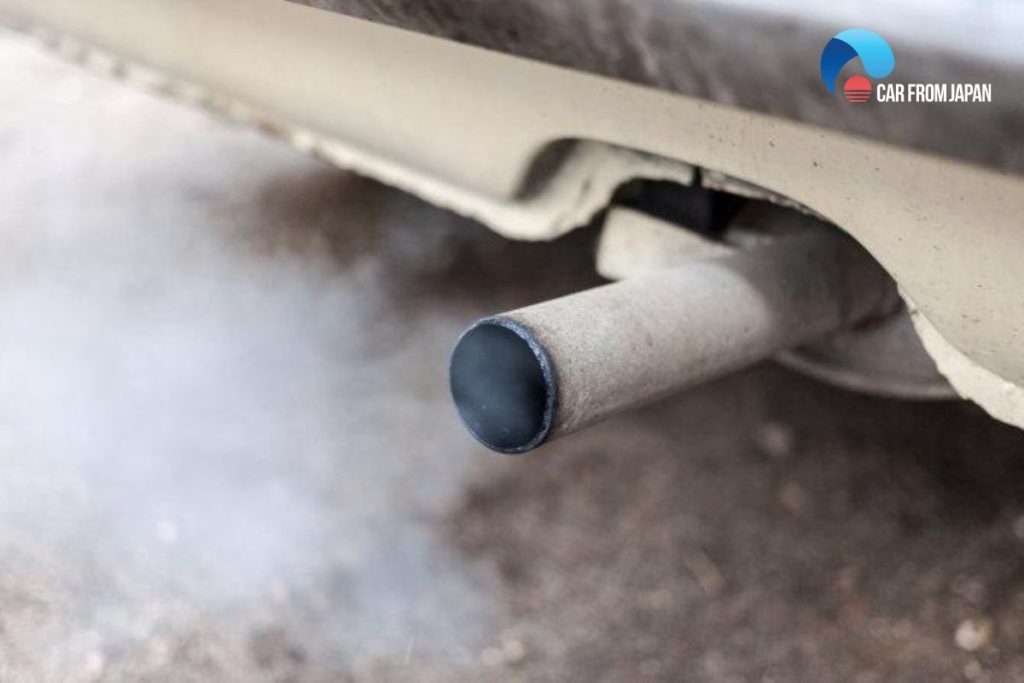
Sometimes, the leaked oil coming from exhaust might not be oil at all! The exhaust pipe can usually be the main source of this problem.
If you haven’t cleaned your car for years, we suggest checking the outside of the pipe. Since it usually collects soot and the layer could be pretty thick.
Mixed with that soot, the condensation coming out of the car exhaust could form an oil-like liquid. But worry not, drivers can fix this issue very easily.
All you need to do is wear a glove and run a finger on the inside of the pipe to see if there’s soot.
Congested PVC Valve
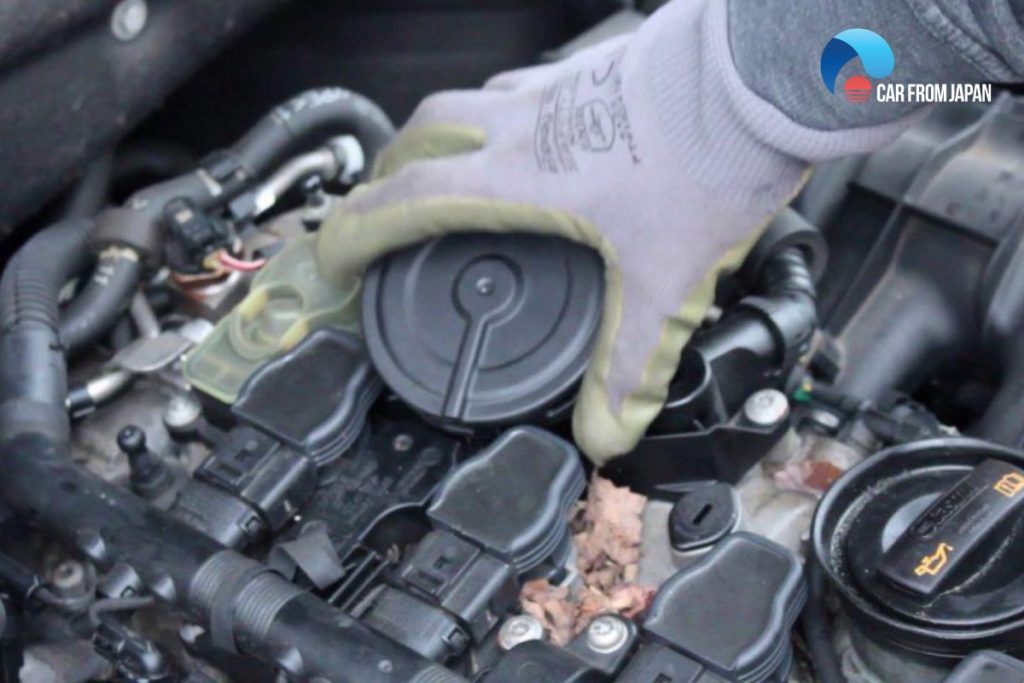
As we all know, internal engine gasses travel to the combustion chambers through the PVC valve. When it’s clogged, the growing amount of gas volume creates pressure on the engine. This will force the oil to pass several seals and into the exhaust pipe.
The warning signs are bluish smoke and oil-smeared spark plugs. To fix this, car owners can replace the valve.
Ruptured Head Gaskets
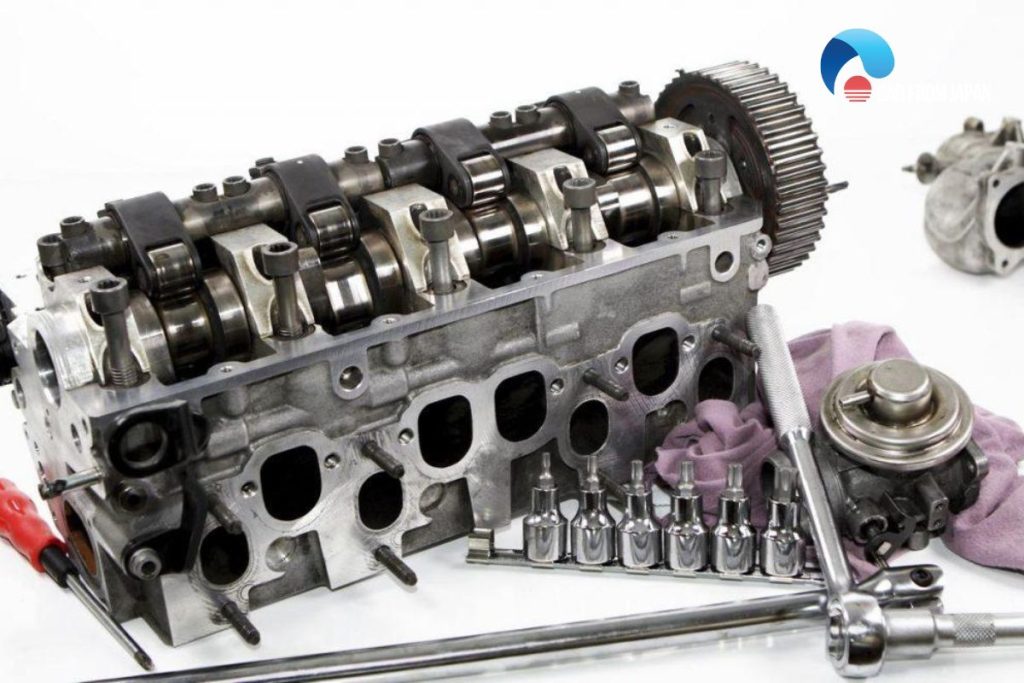
The head gasket can also take responsibility for the oil coming out of the exhaust. Being a part of the exhaust system, these act as a seal between the engine heads and the block.
A blown gasket lets one or more fluids get past the seals and mixed into the exhaust stream. So if you find oil exhaust pipe, this could be a place to take a look.
The symptoms are an overheated engine, reduced engine performance, and excessive fuel burning. You may have to change the defective gasket to bring the system back to normal.
Faulty Valve Guides
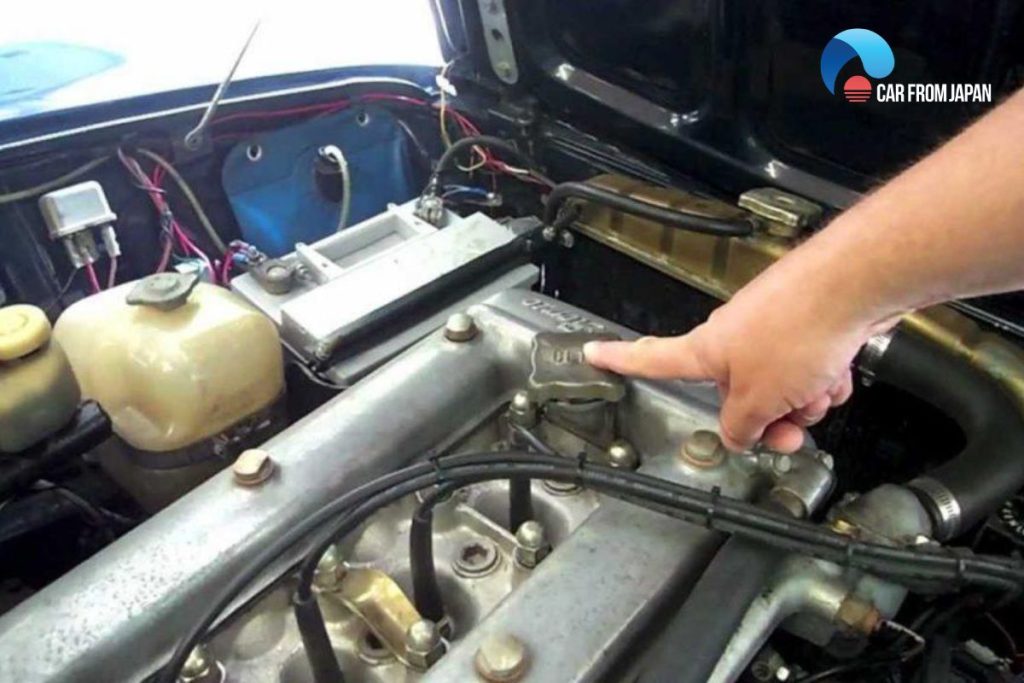
The valve guides control of the gas flowing into and out of the engine. They have seals around their shafts that may wear out with time.
In this case, the engine oil leaks and runs into the exhaust gasses. You will detect bluish smoke coming out of the tailpipe if this problem occurs.
Worn Valve Seals
The valve seals are one of the most common causes of oil dripping out of exhaust.
As the name indicates, valve seals seal the valves and prevent oil leakage into the cylinder. These seals are often composed of plastic. And as time passes, they begin to deteriorate, and the engine’s oil consumption increases.
When the valve seals fail, there will be less oil in the oil pan. This is a strong indicator that your engine is malfunctioning and needs to be checked.
The valve seals are not difficult to change, but this job must be done properly with professional equipment.
Watch Out The Smoke Colors
The colors of the tailpipe smoke are good signs to detect the type of oil coming out of the exhaust problem.
Black smoke refers to unburnt fuel, which means that the engine fails to burn one or two combustion catalysts. Gray or bluish smoke means the leaking of engine oil into the internal combustion chamber.
Besides, white smoke from exhaust requires a thorough examination of the engine. The problem could lie in the combustion chamber or faulty piston oil rings.
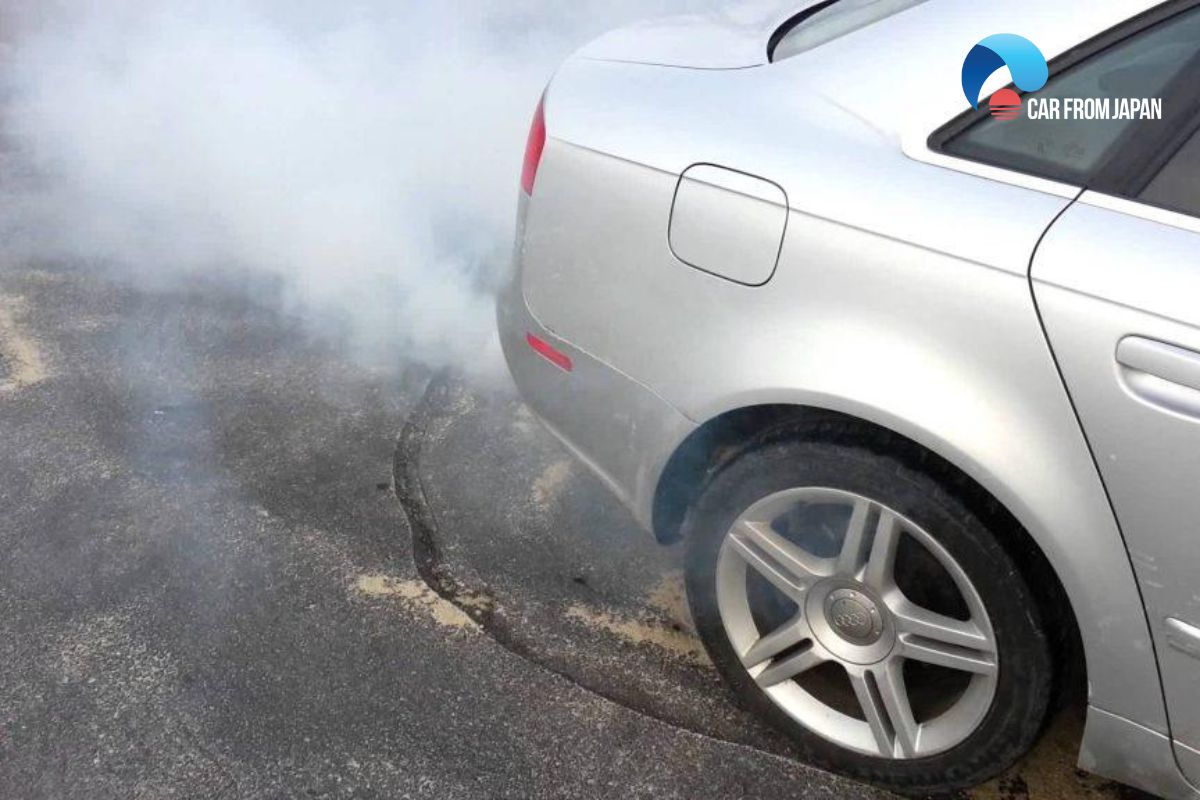
Check the O-rings
Bad O-Rings, or oil rings, can cause oil flowing out of exhaust troubles and spill oil while you drive.
O-Rings are specific material rings that are put on your engine’s pistons. Their job is to ensure that no oil leaks into the combustion chamber from the oil galley.
If oil leaks through them, the engine will develop problems and begin to burn oil. The oil-burning issue is one of the most frequent in internal combustion engines.
This is because most oil rings are losing their capacity to hold the oil. The oil then passes through the oil rings and enters the combustion process.
And if you have an oil leaking out of the exhaust problem, it signifies that parts of your car’s oil rings are closed or damaged.
Your engine is continually leaking oil and is not lubricated since the oil is burning. This oil loss will also cause engine problems.
Broken oil rings can also scar your cylinders and even damage other engine components. They’ll very certainly end up in the oil pan.
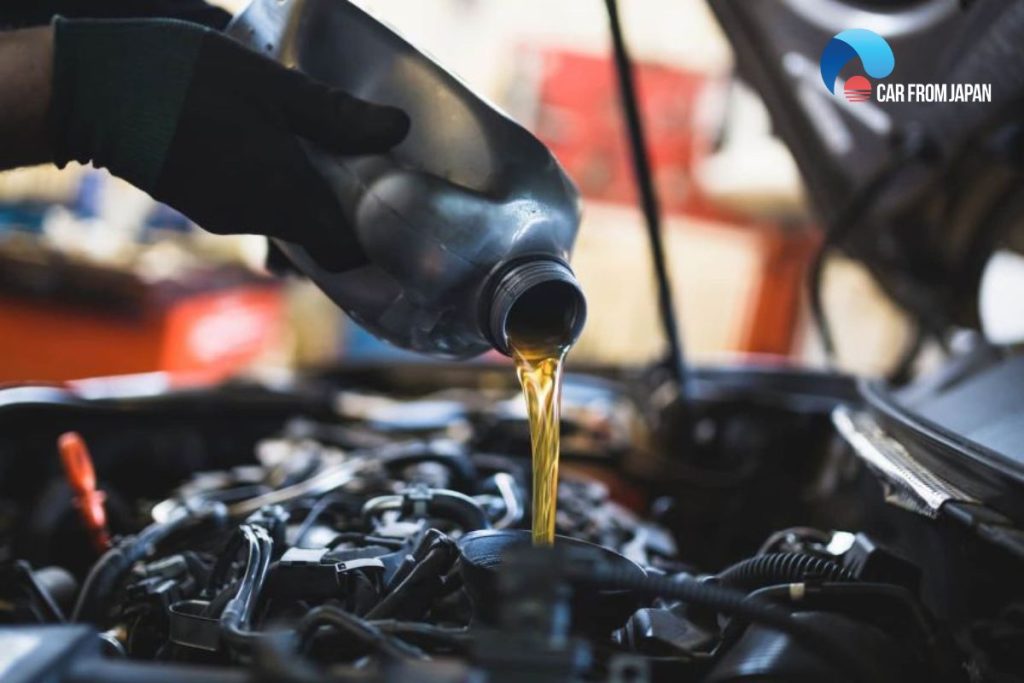
Note:
For the repair, if you’re not sure what’s causing the problem, get the vehicle evaluated by a certified technician.
If you’re familiar with working on your automobile and know what’s causing the problem, you can fix it yourself. But it is always best to consult a professional before making any repairs yourself.
What Can You Do To Avoid Oil Coming Out of Exhaust?
After fixing the issue for your car, there are several things you can keep in mind to avoid oily water coming out of exhaust again.
Maybe these are not completely the most effective methods to keep your car out of trouble for the rest of its service life, take this as reference as they are all helpful to your car’s overall system at any moment.
- Check the oil level in the engine on a regular basis and keep it at the proper level.
- Regular engine care, such as tune-ups and oil changes, keeps it operating smoothly and prevents build-up that may cause difficulties.
- Overfilling your oil pan can cause pressure to build up, allowing oil to leak past seals and gaskets.
- Have your automobile serviced on a regular basis by a competent mechanic who can examine all of the seals and gaskets in your engine for wear or damage.
- If you find any leaks, have them fixed right away so that oil has no chance to enter the exhaust system.
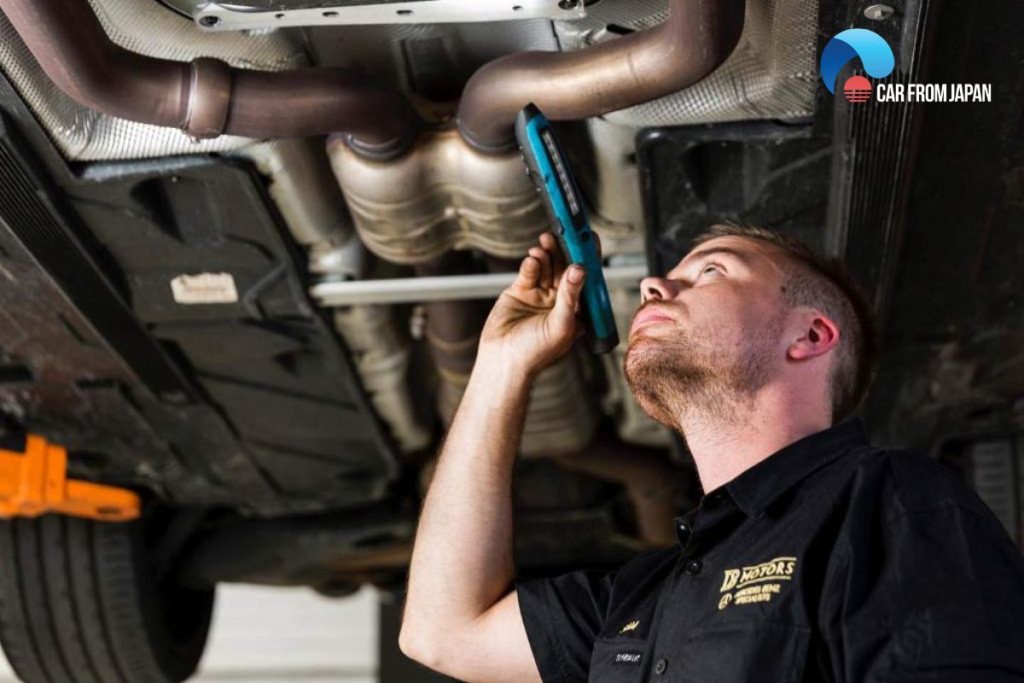
FAQs on Oil Come Out Exhaust
How much does it cost to fix the issue of oil coming out of exhaust?
Overall, the cost to fix car oil leaking from the exhaust pipe will depend on the severity of the problem and the value of your car.
If you merely need to replace the valve cover gasket, the cost of repairing an oil leak may range from $200 to $600.
Depending on the type and model of your automobile, replacing the complete valve cover unit, including the gasket, can cost up to $1,000 or more.
Can oil leak from an exhaust catch fire?
Yes, oil escaping from the exhaust system has the potential to catch fire. The heated exhaust pipes have the potential to ignite the oil, resulting in a deadly fire.
However, this is uncommon and typically occurs only when the oil leak is substantial. If you find any oil leaks in your car, you should have them repaired as quickly as possible to avoid a fire.
Is it safe to drive when oil coming out of exhaust?
No, you should not drive your car if the exhaust is leaking oil. If you see oil flowing from your car’s exhaust, you should get it diagnosed by a trained mechanic as soon as possible.
Driving with an oil leak can cause substantial engine damage, and may even result in engine failure.
It may additionally raise engine noise, reduce fuel economy, and cause knocking noises. Oil leaks, if left unchecked, may ultimately lead the engine to seize.
Furthermore, oil seeping out of the exhaust might be a sign of a dangerous situation that could endanger you and other drivers.
What is the difference between engine oil leaks and oil coming from the exhaust?
When oil seeps from the engine into the surrounding areas, this is referred to as an engine oil leak.
This can be caused by a number of things, such as a damaged gasket or a fractured exhaust manifold.
When oil spills from the engine into the exhaust system, it is referred to as oil coming out of the exhaust.
A variety of things can contribute to this, including a hole in the exhaust pipe.
If left unchecked and repaired on time, both engine oil leaks and oil pouring from the exhaust can cause catastrophic harm.
Conclusion
Oil coming out of exhaust is a fairly common issue for cars with a long usage history.
As a vehicle’s mileage increases, more worn parts can be found, thus frequent maintenance is vital to ensure safe and hassle-free driving.
Check out our comprehensive guide on car maintenance with easy-to-understand step-by-step instructions to gain confidence in taking good care of them at your home!

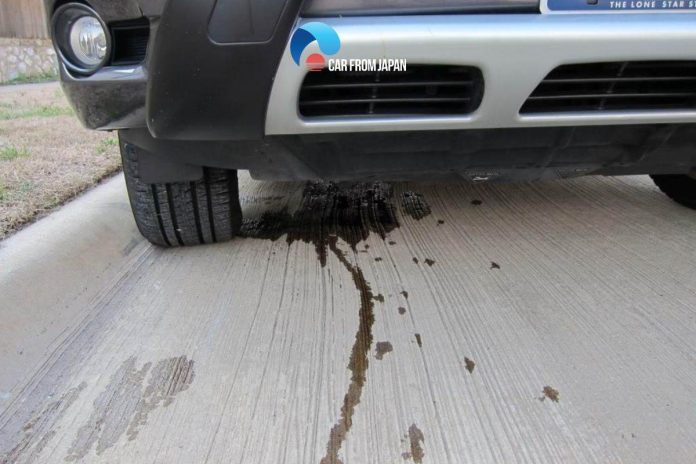


thank you very much i think thats what happened with my car.
My car is taking out white smoke at the exhaust and when I stopped I sow oil coming out of exhaust.what myb the problem?
Very informative post.
Thank you!
Hi there my problem is my car oil coming from exhaust pls I need help to know what is problem
If i park my car for a week it.has hard starts but if the weather is warm it Will start. What might be the cause
If car uses a cold start sensor that can be a problem
My wagon R giving black smoke too much ,oil level deficits 1 litter per 300 km,engine is remake now.problem is not solved.
Dear my Nissan qashqai giving white smoke at start. Went to mechanic as it started missing mechanic changed all plugs and replaced one coil.now smoke is not coming but when I start I seen signs of oil drip from exhaust.
Pls reply
i have an audi a5 sportline 2010, recently my oil warning lights up and need to add no more than 1lt of oil…i noticed after a while if i drive it hard in sport mode i need to fill oil every 400 to 600kms….if i drive it normal i have to re-fill at around 1000kms….i know something is wrong…took it to audi and they ran tests…said they will need to open up the engine….can this be a costly procedure
“Valve guides control the gas flows into and out of the engine.” Ah, I thought that was the job of the valves, valve train, and camshaft. The job of valve guides is to do just that, guide(control) the valves(lateral movement) as well as provide a bearing surface for the valve’s stem. I am not going to nit pick other parts of this article, but I will mention that as a retired automotive technician, rebuilder, and former shop owner with over 45 years of combined experience it is things like this, as well as design issues, that have had me often cussing automotive engineers. But I will add, I enjoy reading this blog and the posts and I always learn something!
Hi, my carbureted car is at idle. After few seconds, it begins to have a rough idle and when I rev it (first rev), there’s a white smoke that cones out from the exhaust. This also happens even the engine is in normal operating temp. On traffic. I suspect that it may have some dried oils within the pipes. But why it only happens when revving at idle period? Thank you in advance! I hope you could help me on this matter.
driving a polo 1.6 hatch 2009 oil water reservoir mixing with oil not mixing in the engine my car does not have oil cooler and ive jst done cylinder head and pressure test but there was no problem what could be the couse?????